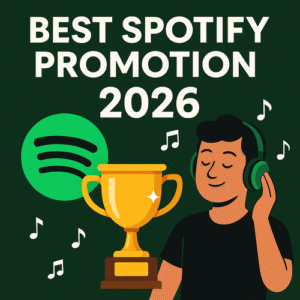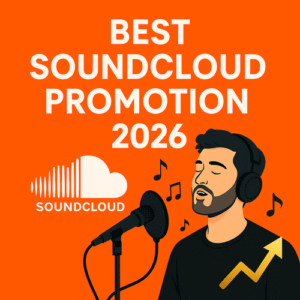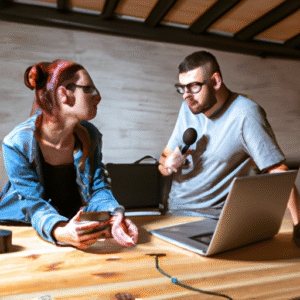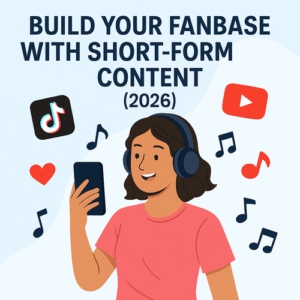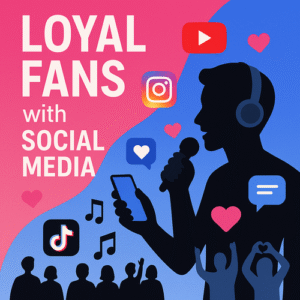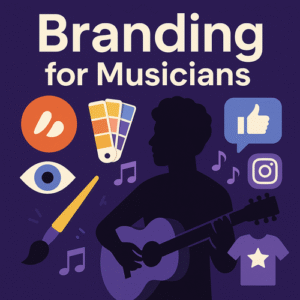Artificial Intelligence is rapidly changing the music industry. For independent artists, AI offers powerful opportunities—from creating and producing music to marketing and growing a fanbase. Here’s how you can use AI in your music career, and the best ways to stay ahead in 2025.
AI Tools for Songwriting and Composition
Modern AI tools can help you write lyrics, generate chord progressions, or even suggest melodies. Apps like AIVA, Amper Music, and Boomy let artists experiment with song structures and ideas quickly. You can use AI as a creative co-writer—feeding it your ideas, and letting it inspire new directions for your songs.
Tip: Use AI for brainstorming or overcoming writer’s block, but always add your personal touch for authenticity.
AI-Assisted Music Production and Mastering
AI-powered platforms such as LANDR, eMastered, and CloudBounce can automatically master your tracks for a professional sound in minutes. AI plugins like iZotope Ozone or Sonible analyze your music and suggest production tweaks. These tools help you get radio-ready results, even on a budget.
Tip: Combine AI mastering with human feedback to ensure your song sounds great on every device.
AI for Marketing and Audience Insights
AI isn’t just for making music—it’s also revolutionizing how independent artists market themselves. AI-powered analytics tools, like those built into Spotify for Artists or platforms such as Chartmetric and ToneDen, help you analyze your audience, spot trends, and target your next release.
You can also use AI to schedule social posts, create visuals, and optimize your release strategy for maximum impact.
Generating Cover Art and Visuals with AI
Platforms like DALL-E, Midjourney, and Canva’s AI tools let you generate album covers, promotional images, and video clips in seconds. This is especially helpful for indie artists who want eye-catching visuals but don’t have the budget for a designer.
AI-Powered Fan Engagement
AI chatbots and email automation can help you connect with fans more personally. Platforms like ManyChat and Mailchimp’s AI tools automate responses, suggest content, and help you keep your audience engaged—even when you’re busy creating music.
Using AI Ethically as an Artist
While AI can be a huge advantage, always use it ethically. Be transparent about which parts of your music or visuals are AI-assisted, and avoid copying other artists’ work. Remember: AI is a tool to help you stand out, not a shortcut to replace creativity.
Staying Ahead: Experiment and Learn
The world of AI in music is growing fast. Experiment with new tools, keep learning, and connect with other artists to share tips. By embracing AI, independent musicians can compete on a bigger stage and reach more fans than ever before.
Boost Your Music with Daimoon.media
Daimoon.media is a leading music marketing agency based in Rotterdam, helping both emerging and established artists grow their presence on Spotify, YouTube, and SoundCloud. With a proven track record—over 10,000 artists served, 15 million YouTube views, and millions of playlist listeners—Daimoon.media delivers safe, organic, and fully tailored promotion campaigns for every genre.
FAQ
AI tools can suggest lyrics, melodies, chord progressions, and even help generate entire song structures. This makes the creative process faster and helps with writer’s block, but it’s still important to add your own artistic style.
AI mastering services like LANDR and eMastered offer fast, affordable results that are great for demos and indie releases. For top-quality tracks, some artists still prefer a human engineer, but AI mastering keeps getting better every year.
Yes! AI-powered analytics can help target the right listeners, schedule social media posts, and analyze which platforms perform best for your music. Some tools even suggest the best times to release your tracks.
Most streaming platforms accept AI-generated artwork, as long as you own the rights. Always double-check platform guidelines and avoid using copyrighted images.
It is ethical as long as you’re transparent about your process and avoid copying others’ work. Think of AI as a creative assistant that helps you bring your ideas to life—not a tool to plagiarize or mislead listeners.
